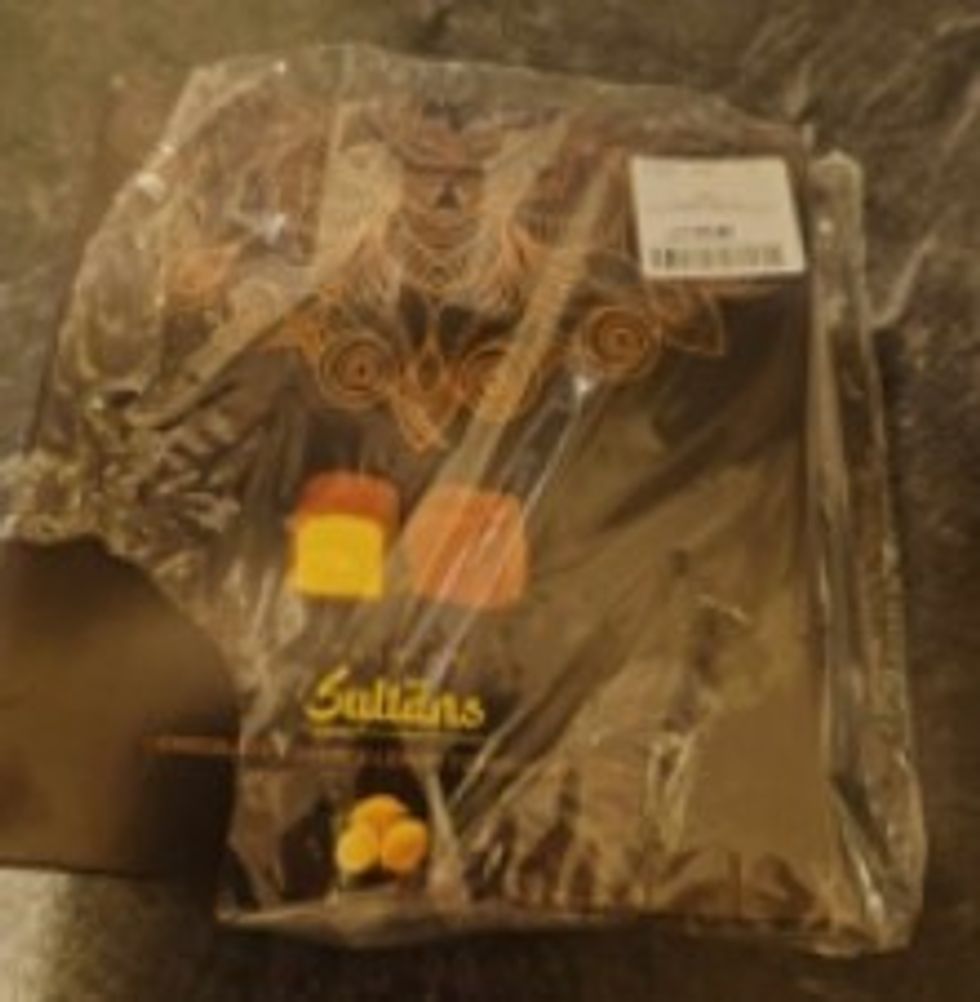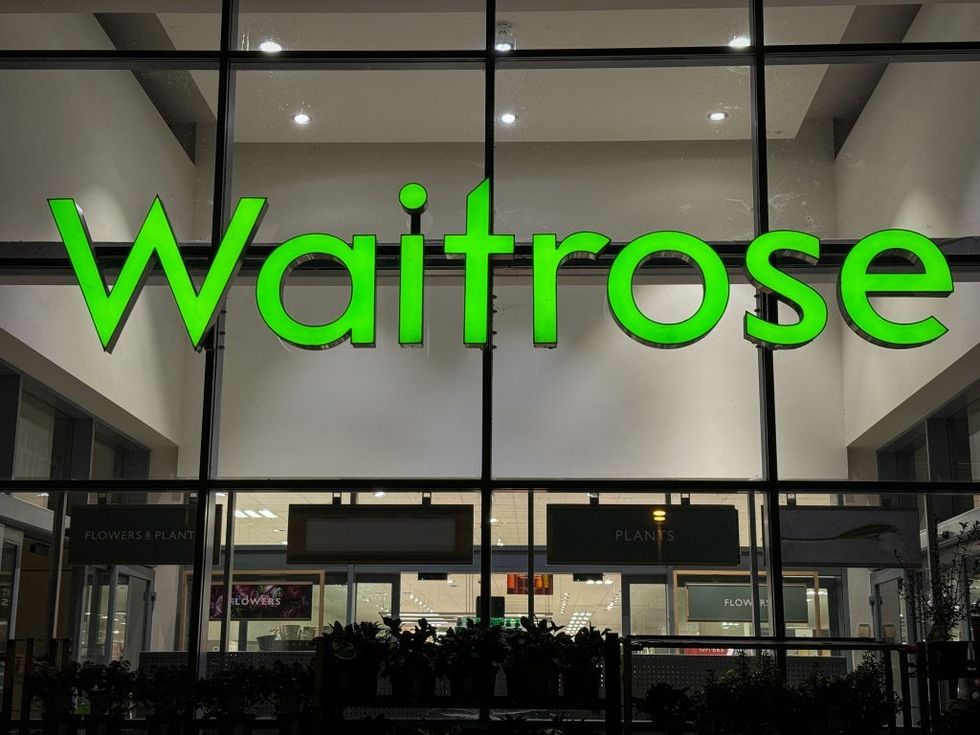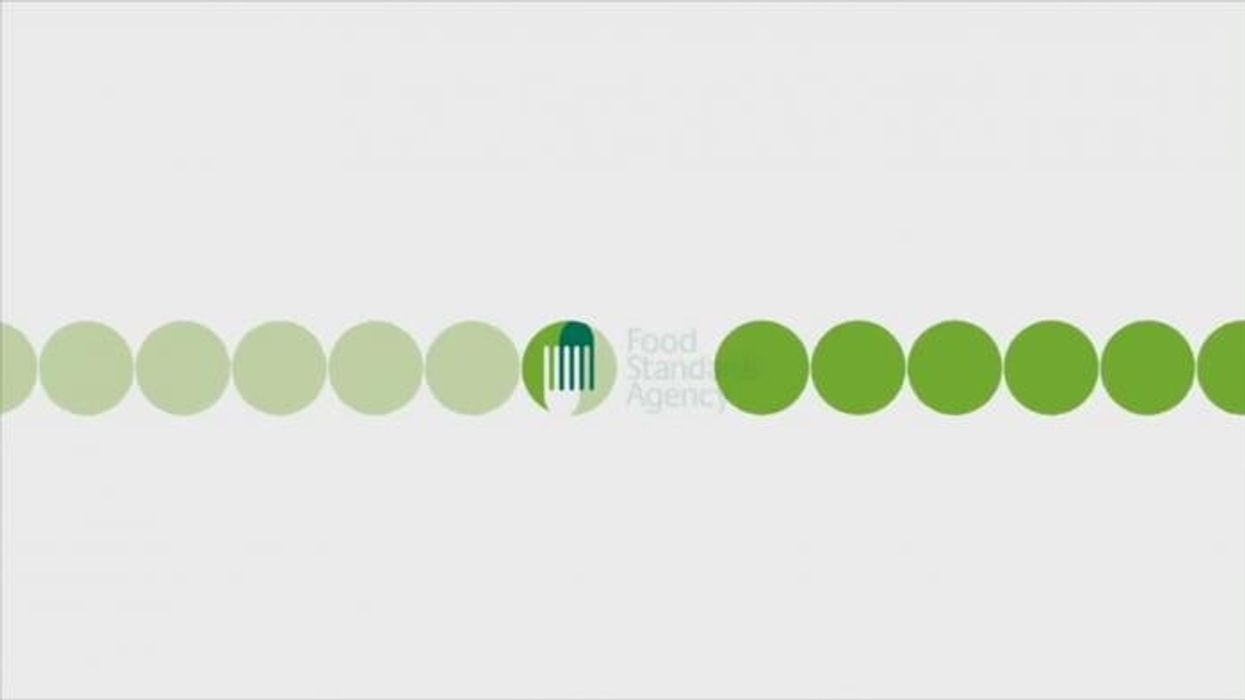Britons alerted as sweet treat that can cause rashes, vomiting and nausea is pulled from shelves

The affected products were sold in TK Maxx and Homesense stores between November and December 2024
Don't Miss
Most Read
Latest
Several confectionary products have been recalled as they contain undeclared milk, making them potentially unsafe for anyone with an allergy or intolerance to milk or milk constituents.
The products have been pulled from shelves in the first of a recall update, as Britons were recently alerted to four other sweets that could cause an allergic reaction.
Sultans Chocolate Covered Lemon Turkish Delight (250g), Sultans Chocolate Covered Strawberry Turkish Delight (250g), Sultans Chocolate Covered Pistachio Turkish Delight (250g) and Sultans Chocolate Covered Pistachio Turkish Delight (250g) - all with the best before date of September 25, 2026 - were all recalled as they contain undeclared milk.
This time, five more Sultans Turkish Delight flavours have been identified as posing the same risk.

'A possible health risk for anyone with an allergy or intolerance to milk or milk constituents'
|TJX Europe
Latest recalled products
Sultans Chocolate Covered Rose Delight
Product code: 760251
Pack size: 250g
Best before: October 15, 2026
Sultans Chocolate Covered Pomegranate Delight
Product code: 760252
Pack size: 250g
Best before: October 15, 2026
Sultans Chocolate Covered Almond Delight
Product code: 760253
Pack size: 250g
Best before: October 15, 2026
Sultans Chocolate Covered Rose Turkish Delight
Product code: 760256
Pack size: 225g
Best before: October 15, 2026
Sultans Chocolate Covered Ginger Turkish Delight
Product code: 760257
Pack size: 225g
Best before: October 15, 2026
The Food Standards Agency (FSA) stated: "TJX Europe is recalling several Sultans Turkish Delight products because they contain milk which is not mentioned on the label.
"This means the products are a possible health risk for anyone with an allergy or intolerance to milk or milk constituents.
"If you have bought the above products and have an allergy or intolerance to milk or milk constituents, do not eat them. Instead, return them to any TK Maxx or Homesense store for a refund or a replacement.
"For more information contact TJX Europe Customer Service on 01923 473561 or email customerservice@tjxeurope.com."
In its official recall notice, TJX Europe shared that all affected products were purchased between November and December 2024 from TK Maxx or Homensense.
Shoppers were told: "If you purchased the product and are allergic to milk, please stop using it immediately and return to any store. We are offering a full refund or a replacement for all affected products."
Allergy UK provides important information on milk allergies. Experts stated: "Mild to moderate symptoms of an IgE (immediate) mediated allergic reaction to cow's milk include an itchy mouth, tongue and throat; swelling of lips, around the eyes or face; red raised itchy rash (often called nettle rash, hives or urticaria); vomiting, nausea, abdominal pain and diarrhoea; and runny nose and sneezing.
"Any one or more of the following symptoms are a sign of a severe allergic reaction (anaphylaxis) and should be treated as a medical emergency. If available, adrenaline should be given without delay and an ambulance called with the call operator informed that it is anaphylaxis.
LATEST DEVELOPMENTS

Waitrose shoppers have been urged to check their kitchens for a recalled chicken product
|GETTY IMAGES
"Severe symptoms of anaphylaxis include swelling of the tongue and/or throat; difficulty in swallowing or speaking or change in voice (hoarse voice); wheeze (whistling noise) or persistent cough; difficult or noisy breathing; and dizziness, collapse, loss of consciousness (due to a drop in blood pressure)."
The TJX Europe recall comes as Waitrose shoppers were urged to check their kitchens for chicken that poses a health risk.
Taste Original Chicken Satay Skewers 96g with a specific best before date may pose a health risk to consumers with food allergies due to an absence of labelling.
The FSA explained why allergy alerts are issued. The Government department stated: "Sometimes there will be a problem with a food product that means it should not be sold.
"Then it might be 'withdrawn' (taken off the shelves) or 'recalled' (when customers are asked to return the product).
"Sometimes foods have to be withdrawn or recalled if there is a risk to consumers because the allergy labelling is missing or incorrect or if there is any other food allergy risk. When there is a food allergy risk, the FSA will issue an Allergy Alert."











